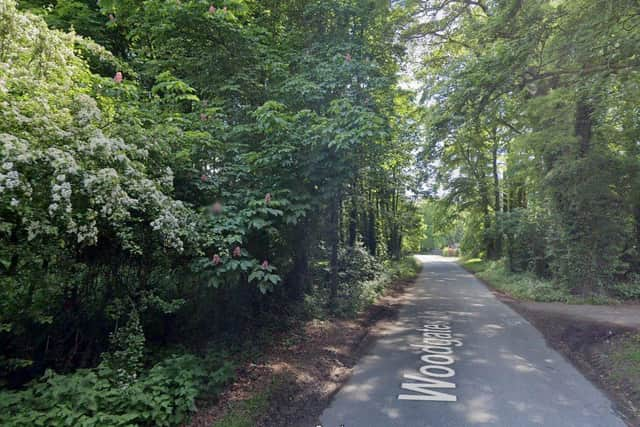Inspector dismisses appeal for second "Grand Designs" house in woodland in East Yorkshire village
It comes four years after Richard Bennett and Felicia Bohm featured on the popular TV programme hosted by Kevin McCloud.
They'd bought a disused, 2.5 million-litre underground water reservoir on the way out of the village of North Ferriby and over six years converted it to what was hailed a "super low-energy, dry, warm house".
Advertisement
Hide AdAdvertisement
Hide AdHowever Mr Bennett's proposals for another four to five bedroomed property in woodland next to the house have been thrown out. They were first refused by East Riding Council last July but Mr Bennett then appealed.


In his report Inspector Paul Martinson said the building would "impose" itself on its setting and not harmonise with it, with a significant number of the trees having to come down.
A large two storey glazed gable would be visible within the woodland particularly after dark, he said.
New houses in the countryside are only allowed if they meet specific criteria - one of which is if they are of a "truly outstanding innovative design".
Advertisement
Hide AdAdvertisement
Hide AdThe plans show an energy efficient L-shaped "barn house" building set into the ground at a depth of 1.5 metres. In his planning application Mr Bennett said his proposals draw “heavily from successful architectural language and sustainability concepts developed and tested" during the reservoir conversion project shown on the TV programme in 2019.
He said the sycamore woodland was "neglected" and he would replant with broad leaf species indigenous to the Wolds.
However the inspector said a "substantial portion" of the woodland would have to come down "causing significant harm to the verdant character of the area".
Mr Martinson was also "not convinced that the proposal would constitute exceptional quality or a truly outstanding innovative design".
Two parish councils had objected to the plans as had the council’s tree and landscape officer who feared it would set an "unacceptable" precedent for future developments in woodlands.
